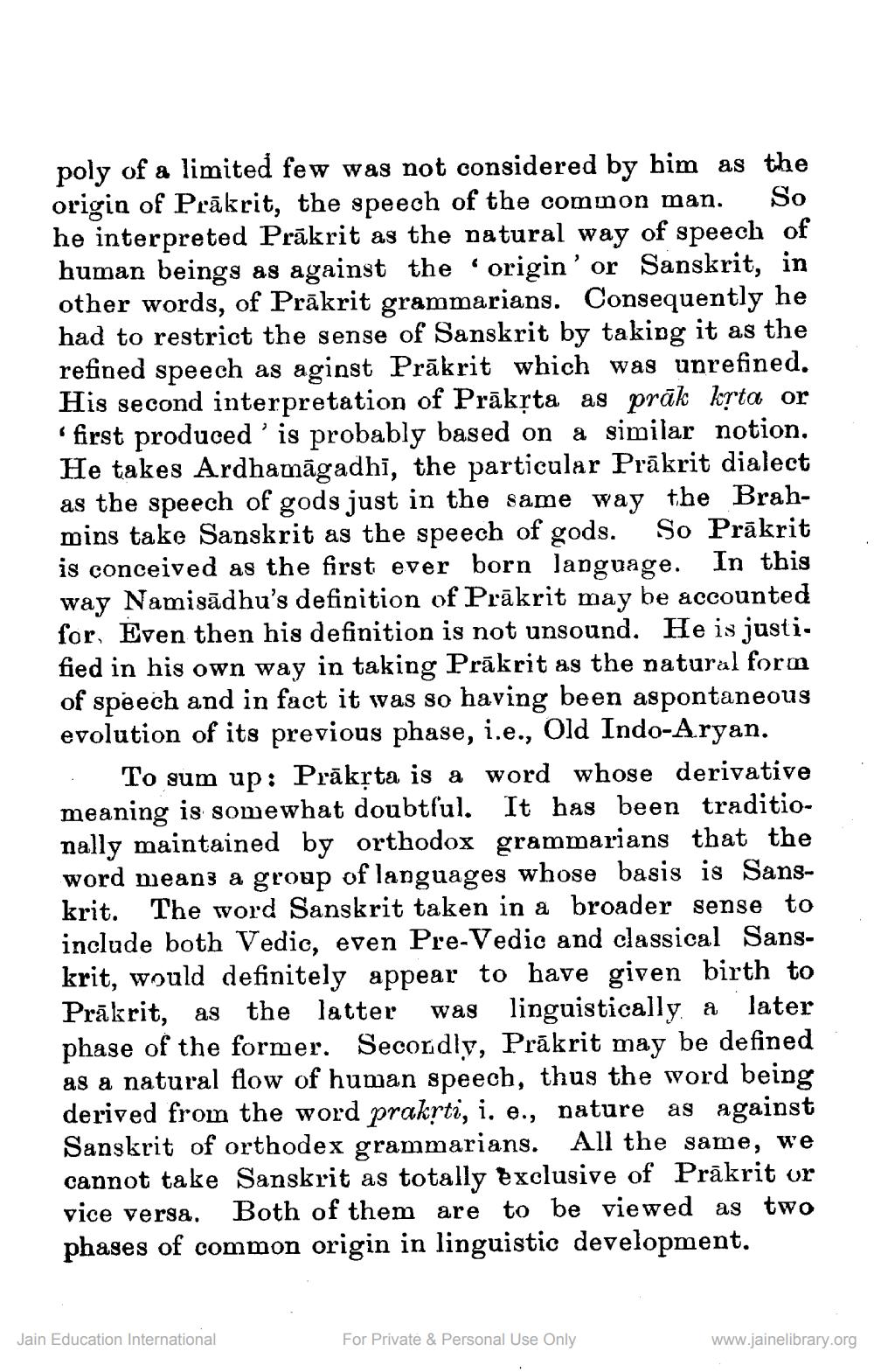________________
poly of a limited few was not considered by him as the So origin of Prakrit, the speech of the common man. he interpreted Prakrit as the natural way of speech of human beings as against the origin' or Sanskrit, in other words, of Prakrit grammarians. Consequently he had to restrict the sense of Sanskrit by taking it as the refined speech as aginst Prakrit which was unrefined. His second interpretation of Prakṛta as prāk kṛta or 'first produced' is probably based on a similar notion. He takes Ardhamāgadhi, the particular Prākrit dialect as the speech of gods just in the same way the Brahmins take Sanskrit as the speech of gods. So Prakrit is conceived as the first ever born language. In this way Namisadhu's definition of Prakrit may be accounted for. Even then his definition is not unsound. He is justi. fied in his own way in taking Prakrit as the natural form of speech and in fact it was so having been aspontaneous evolution of its previous phase, i.e., Old Indo-Aryan.
To sum up: Prākṛta is a word whose derivative meaning is somewhat doubtful. It has been traditionally maintained by orthodox grammarians that the word means a group of languages whose basis is Sanskrit. The word Sanskrit taken in a broader sense to include both Vedic, even Pre-Vedic and classical Sanskrit, would definitely appear to have given birth to Prakrit, as the latter was linguistically a later phase of the former. Secondly, Prakrit may be defined as a natural flow of human speech, thus the word being derived from the word prakṛti, i. e., nature as against Sanskrit of orthodex grammarians. All the same, we cannot take Sanskrit as totally exclusive of Prakrit or vice versa. Both of them are to be viewed as two phases of common origin in linguistic development.
Jain Education International
For Private & Personal Use Only
www.jainelibrary.org




